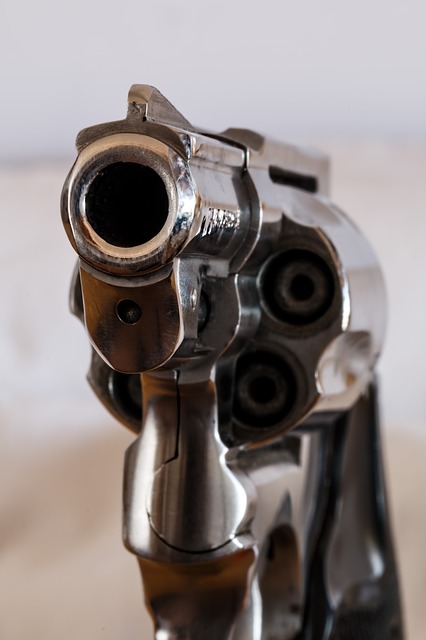
Firing pin impressions are one way investigators can link a gun to a crime scene.
Thanks for joining us again in our discussion about evidence that links guns to crime scenes. In the previous article we talked about gunpowder residue and the trajectory of a bullet after it’s fired. Moving on we are going to look at another two key factors that help investigators and crime scene techs link specific guns to certain people and crime scenes.
Bullet Striations:
In order to understand what a striation is, you need to know what happens when a gun is fired. As a person’s finger tightens on the trigger, the trigger pull drops the firing pin onto the primer, which is located at the back of the bullet casing. This creates a spark which ignites the main charge of gunpowder inside the bullet shell. The rapid expansion of heated gas forces the bullet down the barrel, while the rifling inside the barrel spins the bullet. When the bullet finally ejects from the barrel, it is both moving forward and spinning, much like a football.
Every gun barrel is rifled during the manufacture process. The rifling, which is a series of spiraling grooves inside the barrel whose sole purpose is to improve accuracy during flight, leaves very specific marks on the bullet. These marks are called striations. Each gun leaves individual striations on a bullet as it is fired, which makes identifying the gun that fired a bullet much easier for investigators.
Once a bullet is recovered, either from an impact point like a wall or floor, or removed from flesh by the medical examiner or a doctor, that bullet becomes a very important piece of evidence. Investigators will attempts to find the gun that fired the evidence bullet. However, in order to be certain that this was the exact gun that fired the bullet that was retrieved from the crime scene, crime scene techs will have to fire additional bullets from the gun in question.
They will then compare the striations on these freshly fired bullets, with the striations found on the bullet from the crime scene. If they are a match, police will then know which gun fired the bullets at the crime scene, and this will help them determine who was present at the time. Additionally, even without a gun to use for comparison, the striations on a bullet can identify the type and model of gun, so investigators can narrow down the type of weapon they are looking for.
Firing Pin Impressions:
As we explained earlier, when the trigger is squeezed, the firing pin acts as a hammer and strikes the primer, causing a small controlled explosion to force the bullet down the barrel. A firing pin, just like the rifling inside the barrel, leaves individual marks on the primer. The primer is the explosive cap located at the bottom of every bullet that ignites the gunpowder. There are many factors that influence the surface of the firing pin, and therefore the type of mark left on the primer.
The age of the gun, the alignment of the firing pin, and the size of whatever impression is left will all contribute to marks left on the firing pin. This in turn affects the types of impressions which the firing pin makes on the soft metal of the primer. Investigators match the marks on bullet caps found at the scene, with bullets fired in a test environment from a gun believed to have been present at the scene of the crime.
We hope these articles are informative and helpful to you. Join us again next time for the conclusion to this three part series on evidence found at crime scenes, and how it helps to build a case. Until then, if you or a loved one have been accused of a gun-related crime, or any other criminal activity in Michigan, contact The Kronzek Firm immediately at 866 766 5245. Our highly skilled defense attorneys have decades of experience successfully defending people against allegations of sexual assault, armed robbery, murder and financial crimes. We have earned positive outcomes for hundreds of clients over the decades. We can help you too.







